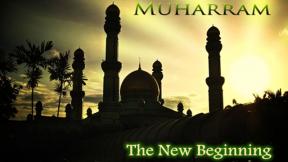
People often ask me, “How do you do so much?” I am humbled and embarrassed by this question.
I thank God for His blessings and credit Him with whatever I do. I also emphasize the role of planning.
When you plan you achieve more!
So let’s plan to achieve more in 2018. I always develop plans, and almost always translate my plans into a daily to-do list while I keep updating my master to-do list.
We thank God for His blessings, which He reminds us to regularly do. He says if we are thankful for His blessings, He will give us even more (Quran 14:7).
He also wants us to be thoughtful and mindful.
“O ye who believe! Be mindful of God! Each one of you must think thoroughly what have you done for the future (morrow). Fear God: For God is well-acquainted with what you do” (Quran 59:18).
God wants us to be thinking individuals. It is therefore not only important to audit what we have done, but to plan for the future as well.
We must plan for our time and money to live a purposeful life. Such a life is the main difference between animals and human beings. Otherwise, our life cycle is not much different. We are born, we eat and drink, grow, reproduce, and die.
It is good for us, personally as well as for our family, to plan. But as we plan we should think of our communities and our country as well.
The template for planning should be the common supplication (Dua) we ask God for in our daily prayers:
"Our Lord! Give us good in this world and good in the Hereafter, and defend us from the torment of the Fire!" (Quran 2:201).
So divide up your plan into three areas.
- This world: How to achieve the best of this world.
- The Everlasting World: How to ensure the best possible outcome in the Everlasting Life,
- Saving ourselves from the Fire. (Keep this as the secret part of your plan. You don’t want to discuss your sins or shortcomings with others)
A person can have nothing but what he or she strives for (Quran 53:39).
You know yourself better and know what to plan for. But you can read this, and this for planning guide.
While planning, make sure that these are not those New Year resolutions which are just wishes. It is helpful to follow the SMART model of goal-setting. This acronym was coined in the journal Management Review in 1981 to describe goals that are Specific, Measurable, Achievable, Relevant and Time-bound. That means a plan should answer what, how, when, and where questions to effectively achieve your goals.
While you are planning, I recommend you consider three success strategies of the Prophet Muhammad in mind. God’s peace and blessing be on him:
1. Communication
2. Care for others
3. Coalition-building and good relations with neighbors
1. Communication:
Better communication skills are much needed for our job, for our family life, and for our faith.
Better communications skills can guarantee better pay on the job, or returns on your business. You can get hired sooner and get a raise faster, you can sell more.
Prophet Muhammad, peace and blessings be upon him, would not officiate a wedding until he recited a verse of the Quran which implores the bride and groom of the importance of clear communication.
“O ye who believe! Guard your duty to God: Speak words straight to the point” (Quran 33:70).
The world is actually looking for Muslims to tell their story. Speak up.
The last 16 years of the war-terror-hate cycle has seen about four million Muslims dead, several Muslim countries destroyed, and now a full throttle genocide has almost eliminated Rohingyas from Burma, an indigenous community living in their ancestral lands, because of their faith and because of their skin color.
But does the world know about it? Did you know that four million Muslims have been killed during this period? Probably not.
Prophet Muhammad, peace and blessings be upon him, is the Mercy to the worlds. We believe it, but do our neighbors know of him as a leader of the Peace Movement of his time? Most likely not.
This is where you mastering the art of communication, learning the craft of storytelling, is critical. Otherwise, Islamophobes and extremists will continue to tell our story, feeding rising Islamophobia around the world. This will hamper our future and the future of our children.
So let’s get hold of our narrative. Let us tell our story.
God actually told the Prophet that his duty is to communicate in the best possible manner. (Quran 5:92 & 36:17).
This is why he used each and every means of communications available in his time to convey and communicate his message.
With this in mind, don’t you think it will make it a Sunnah for us to learn to master and use to its perfection each and every means of communications available in our time?
Muslims normally complain about the media. But remember, the media is run by human beings and other human beings can influence them!
Here are some things you can incorporate into your 2018 plan in this regard:
- Adopt a local media outlet and regularly interact with them
- Sign up for writing and speech classes
- Have your Masjid start classes on interpersonal communication, writing, speech and accent improvement
- Join a Toastmasters club in your neighborhood or start one at your Masjid, but invite other neighbors to join as well
- Check out your local library or community college for free or low-cost public speaking classes and seminars, or request them to start one
- With the help of your librarian, a mentor, or an Internet search, develop a reading list on communication skills
- Write letters to the editor, editorials, and commentaries instead of watching television or wasting time on social media
- If you are a student, no matter what your major, take some courses in writing, public speaking, journalism, audio/video or multimedia production, etc.
- Consider switching your major to journalism, broadcasting, creative writing, photojournalism, video production, or at least make these programs your minor.
- Have a monthly family circle in which creative writing is shared or a presentation is made
- Lean the art of television production by using your digital camera and computer
- And if you want to submit your work for the web, please send it to us at Sound Vision. We'll post the best writing insha Allah, and help guide you further
- Please also Google “how to improve listening skills”. Young Muslims are facing tremendous challenges in school and in society. Are you listening to them? Shura, mutual consultation, is a characteristic of successful people (Quran: 42:38). Communication skills are leadership skills.
Sound Vision can help you as well with:
2. Care For Others:
In the last chapters of the Quran, which were the first to be revealed to the Prophet, there is an extraordinary emphasis on taking care of the poor. As a matter of fact, in the chapter al-Maoon, the main characteristic of the person who denies the faith is that s/he does not care for the poor, the needy, and the neighbor. S/he is also lazy in worshiping the Creator (Quran, Chapter 107).
When the Prophet Muhammad, God’s peace and blessings be upon him, was depressed due to the disbelievers’ anti-Islamic propaganda, God reminded him that He has not abandoned him. He also advised him to take care of the poor and the needy. (Quran, Chapter 93).
This goal of serving others must be pursued with the utmost sincerity. God commands us to not even desire anything in return or expect a thank you. (Quran 76:9)
It is significant to note that the recipients of this message were themselves poor, mostly slaves who responded to the Prophet’s call for freedom, peace, and justice for all. Why, then, are the poor and the needy being exhorted to give more and share more? They were the ones in need!
It is because caring for others makes us better human beings which is a prerequisite to becoming better Muslims to carry the burden of bringing people together as one people to live in peace, justice, and harmony with each other: A duty assigned by God to all of His messengers.
In Islam, when it comes to the rights of poor people, justice, or neighborly rights, there is zero differentiation between a Muslim or a person of other or no faith. A poor person is a poor person. S/he has a right on us, regardless of differences in faith, race, class, ethnicity, or other.
An issue of justice is an issue of justice, even if it goes against us personally, or against another Muslim. There is no distinction of faith in justice.
There are three types of neighbors in Islam. And there is no differentiation in matters of faith of the neighbor. A neighbor is a neighbor is a neighbor.
Here are questions to answer in this area for your 2018 plans:
- How much of your time goes toward helping others in need?
- Can you increase the funds you give out in taking care of the poor and the needy?
- How much of your donations go overseas causes as compared to the poor and the homeless in your city? Islamic scholars emphasize that your neighborhood and your community have the first right on your charity after your close relatives (here are some misperceptions regarding social services).
- What do your colleagues at work or fellow students at school think of you behind your back when it comes to being a caring person?
- Can you professionally help Muslim social services learn to organize better?
- How is your Masjid involved in offering social services?
- Are your Masjid services limited to the Muslim community, or do neighbors of other faiths know about and benefit from them?
- What are fresh projects you, your family, or your Masjid can develop to better care for others?
- How many sermons or lectures in your Masjids are about this critical aspect of our lives as believers?
3. Coalition-Building, relations with neighbors, and working on common causes
Many people, especially Islamophobes and extremists believe that the Prophet was successful because of the sword. This is sheer propaganda and misunderstanding.
He was the leader of a peace movement of his time, and he was determined to avoid war. He considered all wars evil. He prayed for peace and asked other to pray against war. He chose to move from place to place to avoid wars instead of fighting back against torture and murder. The Prophet never killed anyone.
He lived more than 22,000 days but the actual days of war defending his peace sanctuary were just six. In all, around 400 people died from all sides. The question arises that if it was not sword, then how did he achieve success? The answer is that other than good communication and sincere care of all of God’s creation, he was an ingenious alliance-builder.
He believed in the oneness of humanity. Muslims are but one part of humanity who have been ordered to invite others toward peace and justice.
God tells us that He created humanity as one people. It is human beings who divided themselves. He sent Divine Guidance with thousands of Prophets and Messengers throughout history in various places across the globe. The aim of this guidance was to teach us how to live a purposeful life in harmony with others.
“We sent aforetime our Messengers with clear signs and sent down with them the Book and the balance of right and wrong, that people may stand forth in justice, fairness, equity and peace (Qist)” (Quran 57:25).
These ideals of one humanity are often lost on human beings. This is why Prophetic teachings are universal.
It was with these principles in mind that the Prophet developed alliances and coalitions. As one writer notes, “He achieved victory by an ingenious and inspiring campaign of nonviolence.”
He fought only to defend his peace sanctuary when God commanded it, despite the fact that he hated war (Quran 2:216).
Even in the state of war, God commanded Muslims to still engage the enemy in working toward the common good. (Quran 5:2) Working on the common good is a part of the Prophetic path.
The Prophet’s partners included many non-Muslim individuals, as well as tribes and people of other faiths who gave him refuge, defended him with their lives, and prayed in his mosque based on their own religious rites.
In his peace sanctuary, the city of Medina, Prophet Muhammad declared that all of its people of different faiths were one people (Ummah), without regard to their race, ethnicity, or religion. He enshrined this in a written constitution. God’s peace and blessings be upon him.
In light of the Prophetic success story of coalition-building and common cause, the questions to ask yourself as you plan are the following:
- How is your relationship with your neighbors?
- How is your concern for your neighbor, your community, and your country reflected in how you spend your time and your money?
- Do you connect with others on common causes?
- Are you a part of making any coalition stronger?
- Have you ever invited your neighbors, your colleagues, or fellow students to your home or Masjid?
- Have you ever prayed for your colleagues, your neighbors, or your fellow commuters?
- Is your Masjid involved in a coalition?
- What are the goals of your interfaith coalition?
- Are you connected with groups to improve school education?
- How is your concern for the poor and hungry reflected in the choices you make while voting?
- Have you signed up on One America Coalition?
- Is your community a part of a peace movement, anti-war movement, undocumented workers’ movement, an anti-poverty coalition, or coalition for the homeless.?
- Are you bringing concerns for the benefit of all to your elected representatives?
Mastering communication skills, caring for humanity, and working with neighbors in coalitions were all Prophetic strategies of success in living a purposeful life.
So let’s translate our concerns for ourselves, our community, and our country into something concrete in 2018. But remember, the goals need to be specific, measurable, achievable, relevant, and time-bound, SMART, that is.
May God bless us with the best of this world, the bounties of the everlasting life, and may He save us from the ill consequences of our misdeeds and idle lives. Ameen.
You may also find more useful ideas to incorporate in your 2018 plans from an article I wrote last year about 10 Things You can do for Yourself, for Islam, and for America in 2017






Add new comment